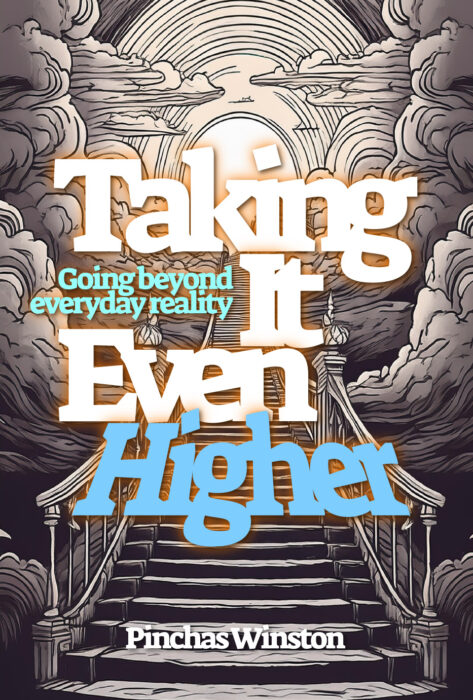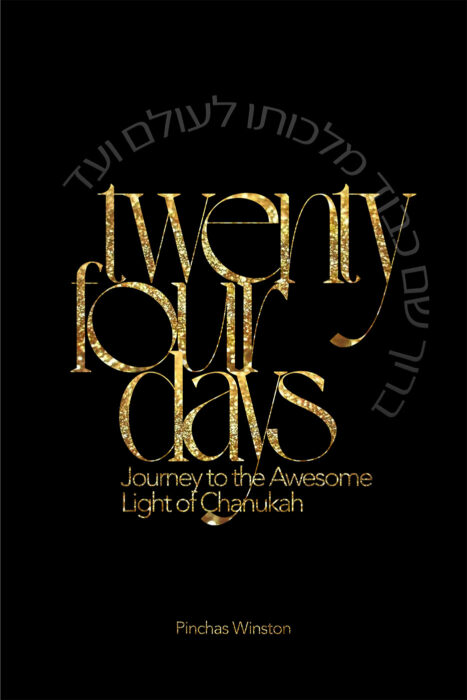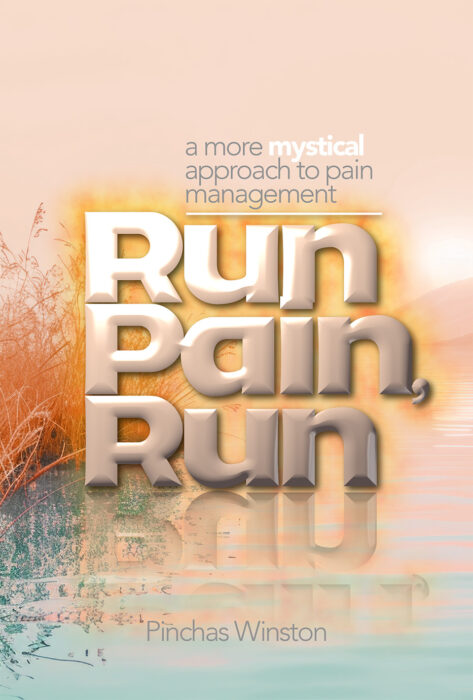Parashas Korach, Issue #999 – By Rabbi Pinchas Winston
Friday Night
THERE ARE TWO types of people in the world, “Us,” and everyone else who does things that we would never do. Of course, all of those “others” look at us sometimes and say the same thing about the things we do. Some people even tend to migrate over time from one group to the other once they change their minds about what constitutes “crazy.”
Had “we” been there when Korach rebelled against the great Moshe Rabbeinu, the only one to have talked face-to-face with God so-to-speak, the only one God called “trusted in His house,” would we have stood against him, or for him? Before answering that question, consider how many times while growing up you thought you knew more than the “higher authorities” and wanted to do things your way, not theirs.
Tisha B’Av is fast approaching, during which we will read Eichah. Eichah recounts how the Jewish people were conquered by the Babylonians and then forced into bitter exile. It recalls how the Temple, the House of God was destroyed by impure people who burned it, a stone building, to the ground. And all of it is summed up by one word, “Eichah—How?”
How did things come to this?
How did the situation get this bad?
How did we not listen to the prophets’ warnings?
How, how, how?
I’ve often made mention that one of the Jewish people’s greatest assets can also be one of their greatest liabilities, our ability to adapt. There are times that adapting is a survival tactic, and there are times that it is a prescription for self-destruction. Yes, “it can always be worse,” but no, that is not always a sign than the current situation is an acceptable one.
Hence the Talmud describes a wise person as one who looks hard at the current situation and at dominant trends, and projects them into the future (Tamid 32a). Anyone can recognize a crisis while it is happening. It takes a chacham to recognize one in the making while there is still time to avert it. Korach may have all-of-a-sudden just shown up in this week’s parsha, but the truth is, he was a crisis in the making for some time.
And all of the shocking events of today?
The same.
Shabbos Day
THERE IS A whole discussion about what Korach actually “took” since the Torah doesn’t tell us. The truth is, all of the answers are really the same because they all derive from the source of Korach’s demeanor, his soul. Kayin’s soul reincarnated all over the place, in pieces. Unfortunately for Korach he “took” one of the evil ones, driving him to act as he did.
And marry who he had married. As the Talmud points out, Korach might not have gone the full distance to challenge Moshe Rabbeinu had it not been for the former’s wife. Behind every great man is a great woman, and apparently an evil one behind an evil man. On ben Pelet’s wife saved him from disaster by convincing him out of the madness. Korach’s wife did the opposite, and shared the fate of her husband and family.
This is why we have halachah, and statements like, “Make a rav for yourself.” Self-confidence is important, but not to the point that it can blind you to the truth about your mistakes. No one is completely objective, and how much more so when they have a soul that can influence them in the wrong direction.
You could say therefore that Korach was a crisis in the making since birth. Just like Eisav before him, who he was also a reincarnation of Kayin, he was predisposed to be naughty. So when he became a very wealthy man by finding one of the three treasures buried in Egypt (Pesachim 119a), the power of wealth was added to the power of ego to make a deadly combination. Apparently, there are a few of those walking around today as well.
Political power and ego can be an even deadlier mixture, and usually is. The best politicians stay away from politics in order to preserve their humility and honesty. Many others who run into politics, do it to feed their ego and that can only lead to corruption. We’re watching that happen all over the world these days, not just in the east, but in the west as well.
The thing about corrupt leaders is that they don’t usually see themselves that way. They see what they are doing and they know what they are planning, but they lack the moral capacity to feel any shame about it. Just like some people are born with a damaged brain that prevents them from learning social skills, corrupt leaders have something wrong with them that prevents them from appreciating the injustice of what they are doing.
Seudas Shlishis
ANOTHER ELEMENT IN Korach’s rebellion that made it possible was the support he had. Rashi explains that Korach shook a lot of hands and kissed a lot of babies, telling people, “You think I am challenging the leadership for my own good only? No! I am doing it for yours as well!” And though he had far less than a majority of the people supporting his fight, he had enough people of note to make him feel it was worth the risk.
What they hadn’t known was that Korach was using them as a human shield against Moshe. Had Korach fought on his own, perhaps with Dasan and Aviram only, he would have been at great personal risk. Getting rid of a couple of offenders is much easier to do than dispensing with a large group of prominent followers. Perhaps a larger group would have at least forced Moshe Rabbeinu to the bargaining table.
Clearly it was a gross miscalculation on Korach’s part. His worst fear came true, for him and his would-be human shield. As Rashi says, “Woe to the evil person and woe to his neighbor.” When Korach’s followers signed up for his rebellion, in effect they signed their last will and testament, agreeing to lose everything. This makes Korach’s rebellion a lesson not just for those who might feel “inspired” to challenge Torah leadership, but a big warning to everyone else who might be “inspired” to join the cause. You have to be very careful to know the issues, what is truly acceptable by Torah standards, and what you stand to lose if you’re wrong.
One of the unique things about today is how many people have an opinion about everything. First of all, having more people means having more opinions. But that has only been part of the equation of mass opinionation. A major part of that equation has been the Internet that has allowed the media to share its opinion worldwide. Social media has helped to bring those opinions even faster.
Tragically, it has also changed the definition of an “informed opinion.” Today people are more informed than ever before. The problem is the lack of veracity of the information that is informing them. Just as the Internet is a great proliferator of truth, it has also become a huge proliferator of falsehood.
If this was a God-fearing world, as will be the case in Yemos Hamoshiach, b”H, we wouldn’t have to fear the latter. Unfortunately, there are lot of Korachs out there misinforming the masses, resulting in a lot of dangerously wrong opinions. Little is more perilous than people who are so wrong but believe they are right. Sometimes it takes a world war to show them otherwise, God forbid.
Melave Malkah
AND THE EARTH that swallowed Korach and followers? That was the same earth that swallowed the blood of Hevel back in Parashas Bereishis. Korach may have been the reincarnation of the bad of Kayin, but Moshe was the reincarnation of the good of Hevel. It shows once again how, kabbalistically, new conflicts are usually just old ones in disguise.
You can never be too sure. Everyone today is a reincarnation of someone. The only question is, of whom? Chances are that if a person is living a simple existence and they’re okay with that, with little ambition to have much more of an impact than on their immediate reality, they have been that way in every gilgul, more-or-less.
But if a person feels driven to do something big even though they have yet to, there’s a good chance the soul inside of them is bigger than their life to date might have become. They may be one of those individuals that has tended to leave a mark on history that goes on past their personal life.
Then the question “of who?” becomes even more important. Tragedy is not when someone evil does something evil. It is when someone who could have been good does something bad, especially when they thought at the time that they were doing something good. Then everyone stands back and asks, “How?”
No wonder the rabbis have said that one should be deliberate in judgment (Pirkei Avos 1:1). Time is always important, but never as much as when it comes to making critical decisions. How many catastrophes have been averted over the millennia because someone took a few moments more to consider and reconsider what they wanted to do or not do? How many have occurred because people didn’t?
“Fools rush in where angels fear to tread.” How true. But just as true is that you don’t have to be an actual angel to know where not to rush in. You just need to be a thoughtful, humble, mature, respecting, and truth-loving person. If you are all of these, and had you wings too, then you’d be an angel. But then again, angels are made this way and get no credit for it. Humans are made just the opposite and get tremendous credit if they manage to fashion themselves in this way.
Sadly, this is not taught in school. It is not taught by most parents, and the media promotes just the opposite. Without religion, man is ego-driven and doomed to be a Korach on some level, and to eventually pay the price for it, especially for all the people they hurt along their way. We are so close to the end of history, if you know what to look for. Life has never been a bigger test. The skill testing question? Are you more a Korach, or a Moshe Rabbeinu?
How your life answers that question will determine your future in this world as well as in the next one.
Rabbi Pinchas Winston
Thirtysix.org



















